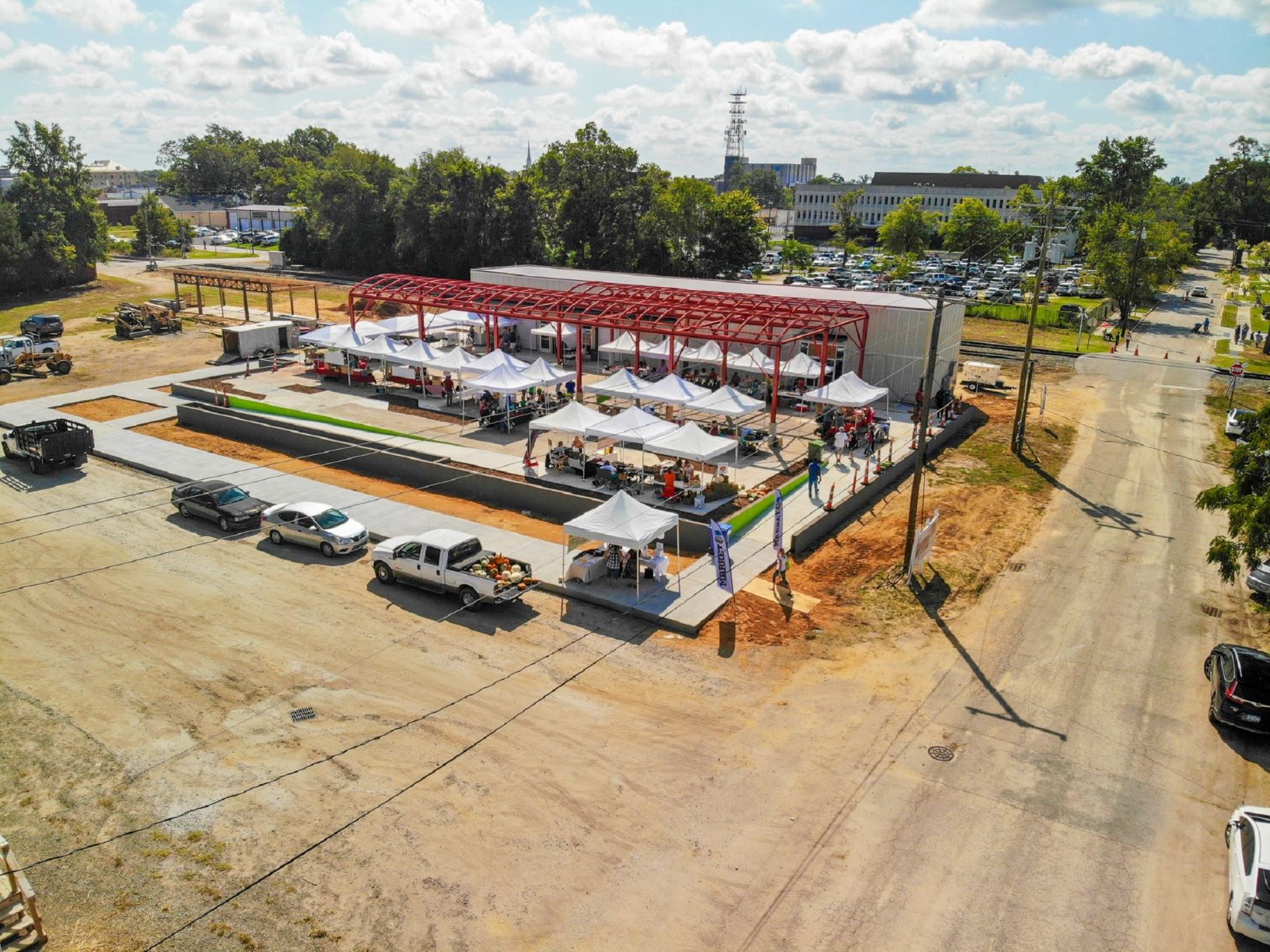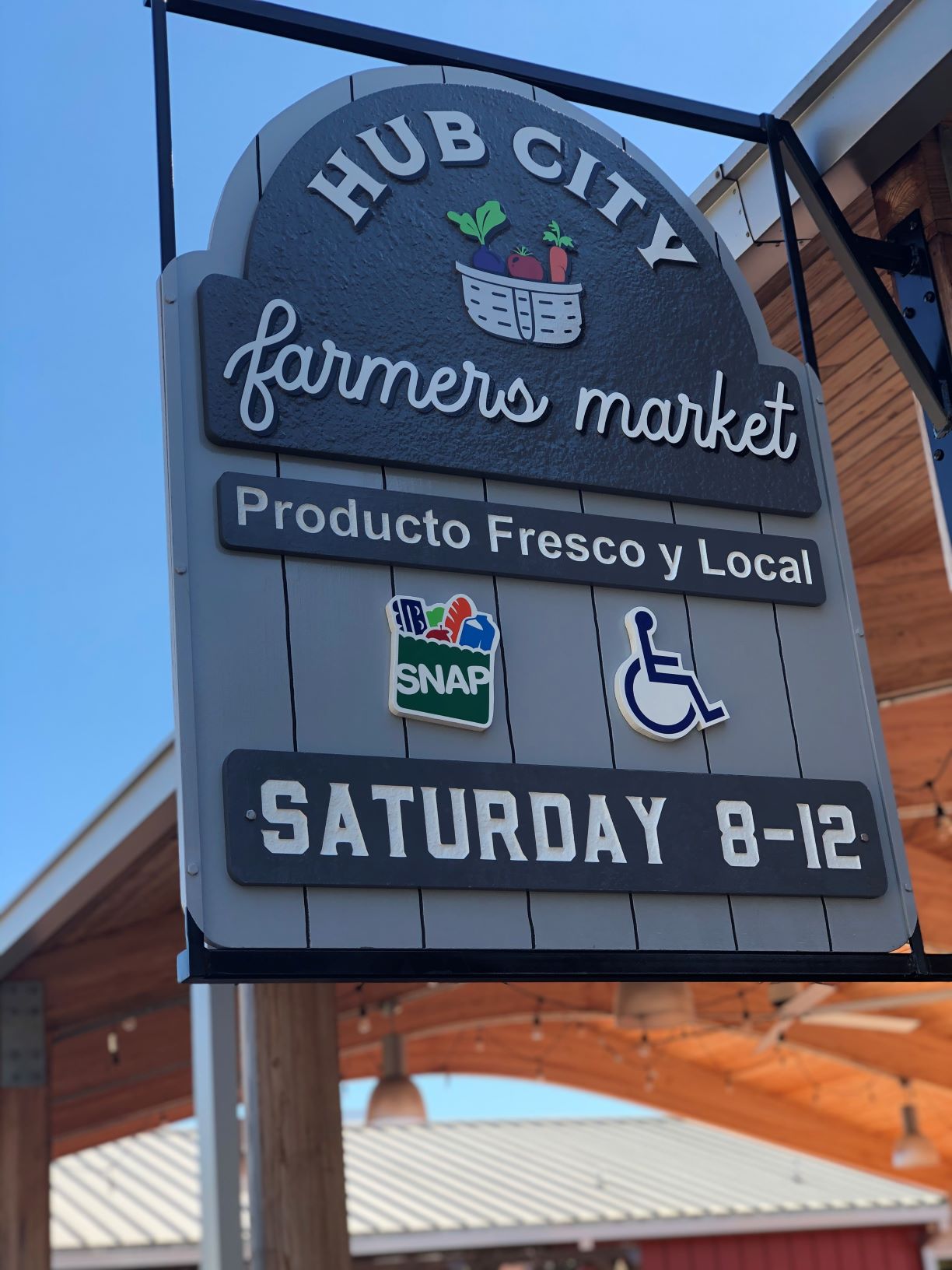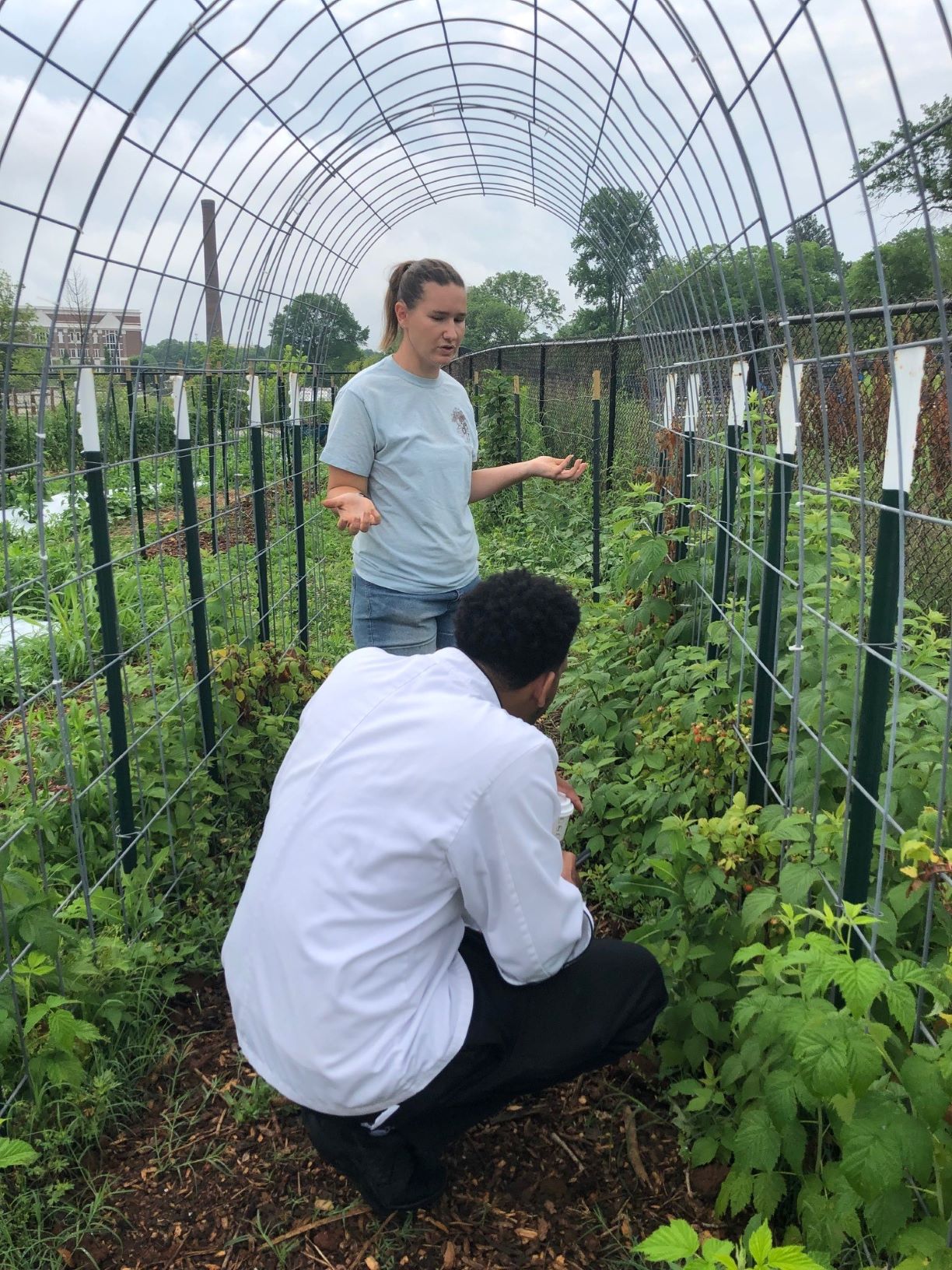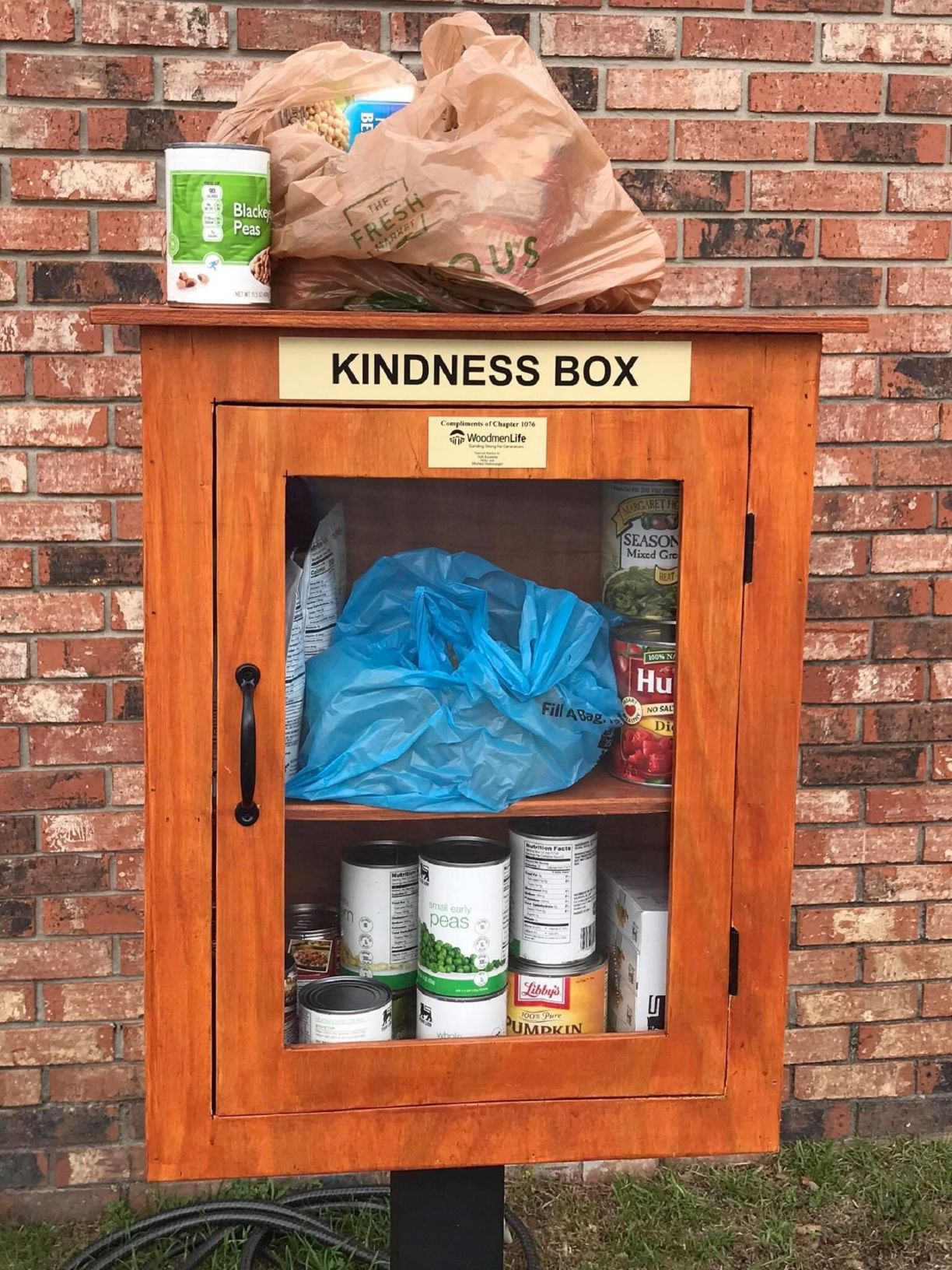Cities Work to Improve Food Access
Improving access to healthy food is an important but challenging goal faced by municipal leaders who know that a poor diet can affect the health and well-being of residents.
Several South Carolina cities have addressed the issues of food deserts, the name given to U.S. Census tracts that have many low-income residents lacking easy access to stores selling healthy, affordable food. Food deserts, where people live miles away from grocery stores or farmer's markets and lack transportation to reach them, often have high concentrations of diet-related illnesses and obesity.

The City Center Farmers Market is part of Florence’s Food, Artisan and Warehouse District.
Photo: True Light Photography.
One of those cities working on the issue is Florence, which created a Food, Artisan and Warehouse District designed to address goals identified in the city's comprehensive plan, especially in the areas of community health and livability. The plan aims to remove food access barriers along with promoting the overall wellness of the community.
"The city is aware that the Pee Dee region is ground-zero for lifestyle diseases and a significant portion of the city is a USDA-designated food desert," Florence City Manager Drew Griffin said.
Griffin said Florence worked to create a sense of place where healthy choices are easy to make. It included a farmers market facility with a commercial kitchen, along with locating a public transportation hub in the district. Florence located the city's health and wellness campus, which includes the Barnes Street Activity Center and a playground created in partnership with I PLAY Florence, as part of the district.
The project required a substantial financial commitment. The city first built a $5.4 million gymnasium. It then obtained local foundation funds to relocate the regional transportation hub to the development district. Next, the city partnered with I PLAY Florence to build the $500,000 all-inclusive park. Florence invested $1.8 million to construct the City Center Farmers Market and commercial kitchen, and contributed $625,000 toward the cost of a downtown grocery store, to which the Palmetto Housing Authority also committed $800,000.
"These efforts were efficiently funded by using TIF [tax increment financing], hospitality and foundation grant funds, minimizing the impact on city taxpayers," Griffin said.


Spartanburg is home to the Hub City Farmers Market’s urban farm.
Photos: Hub City Farmers Market.
In Spartanburg, the Hub City Farmers Market is committed to increasing the supply, demand and access to healthy local food, all while addressing food-related health issues.
Five years ago, the city and its partners built Northside Harvest Park, the cornerstone of the Northside development initiative. Each Saturday, a market is set up at the park, while the nonprofit Butterfly Foundation operates the Monarch Café and Fresh Food Store that also is open during the week.
The organization also features a Mobile Market, which purchases produce and other goods from local farmers and entrepreneurs and resells it.
Jordan Wolfe, executive director of Hub City Farmers Market, noted that about 35,300 people in Spartanburg County are considered food insecure or have limited access to grocery stores.
"A lot of that concentrated poverty is in the southside and northside areas of the city, and it's been this way for a long time," she said. "The city worked with us because they realize there needed to be a change and there needed to be champions in place to make that happen."
Northside Harvest Park has elements of community food centers that are popping up all over the country, Wolfe said.
"Our version has an urban farm. When you consider the northside is a food desert, it's kind of cool to think that we grow 2,000 pounds of produce there every year. That gets sold on our Mobile Market, which goes around to 100% food deserts."
Products from local farmers are also sold through the Mobile Market, a large truck that drives to locations around Spartanburg, offering fresh produce, bread, meat, juice, honey and other items.
Spartanburg is also looking at the core issue of convincing people of the importance of eating healthy food and making good choices.
"We're only open four hours, once a week. We can't change the obesity situation that's going on, but we can work with community partners, getting to the core issues," she said. That includes educating children through a nutrition education program, which allows students who complete the program to receive vouchers to purchase healthy food at the market.
The Town of Elgin is home to two grocery stores, but there is a problem for lower income people in nearby communities trying to access healthy food, according to Elgin Mayor Melissa Emmons.

Elgin Town Hall has a “kindness box” for donating nonperishable food. Photo: Town of Elgin.
She said Elgin works closely with the United Way of Kershaw County's Mobile Nutrition Center Program, which features a truck offering fresh fruits and vegetables, and Kershaw County Food for the Soul, which partners with the town to distribute meals.
"There is a need, not necessarily in town, but in our surrounding area. That could be one street over from where we are located. Our town limits are small," she said. "This is a great way to show your community you are here for them, that you do what you can to help. We do not limit ourselves to the town limits. When we serve, we serve as many as we can in the surrounding areas."
Emmons said Elgin worked with a nonprofit insurance company about two years ago to add a "blessings box" at town hall, a tiny food pantry where residents leave nonperishable food for people in need.
"We needed an avenue to get food to them. People help us keep it stocked, and those who need food, take some. The community loved it," she said. "That worked out so well that a local Girl Scout troop built another one and put it at the side of the building of the Family Dollar. People do the same thing there. Those in need take what they need. The goal is that one day, they'll pay it forward."
She said whether working with nonprofits or other organizations, it's important to keep communication — and food — flowing.
"We can't solve all the problems on our own. So many organizations are trying to accomplish the same goal. When you pool your resources, you can make a larger impact," Emmons said.
